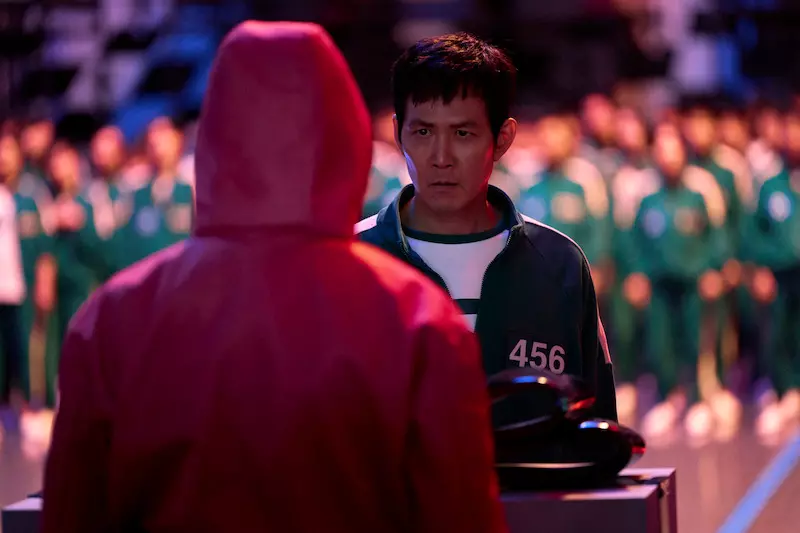Table of Content
Imagine watching a movie that’s making waves worldwide for its bold storytelling, only to realize that you’re getting a censored version.
That’s exactly what happened with Babygirl, the latest steamy drama starring Nicole Kidman, Harris Dickinson, and Antonio Banderas.
But why is this film stirring so much buzz? And what makes Babygirl different from the usual romantic dramas?
Let’s dive into the details of this intriguing film, the censorship controversy, and Nicole Kidman’s thoughts on playing such a challenging role!

Babygirl Release Date
Halina Reijn's erotic drama Babygirl, starring Nicole Kidman, Harris Dickinson, and Antonio Banderas, premiered in theatres on February 21 but faced several cuts mandated by the Central Board of Film Certification (CBFC). Although the movie has received global acclaim for its daring narrative and examination of desire and power, Indian viewers watched an edited version because of changes needed for approval.
India Censor Board Cuts Bold Scenes from Babygirl Drama
The CBFC has cut a total of 3 minutes and 36 seconds from the movie, featuring a heavily edited intimate scene lasting 1 minute and 34 seconds. Moreover, a 1-minute and 35-second scene has been fully removed, along with 25 seconds featuring nudity. In addition to visual alterations, profanity has been eliminated, and required anti-smoking and anti-alcohol disclaimers have been included.
While global audiences have had the chance to watch the film in its original, unedited form, Indian viewers will only see the edited version in cinemas. This marks the most recent in a line of censorship rulings by the CBFC, after recent alterations to intimate moments in Bollywood movies such as Deva and Bad Newz, where kissing scenes with Shahid Kapoor, Pooja Hegde, Vicky Kaushal, and Triptii Dimri were shortened.

About Babygirl
The movie centers on Romy, a strong CEO portrayed by Kidman, whose organized life unravels when she starts a passionate relationship with her significantly younger intern, portrayed by Harris Dickinson. The narrative explores themes of affection, authority, and women's sexuality, illustrating intricate power dynamics in contemporary partnerships.
Nicole Kidman felt unsettled during the filming of the movie
In a past interview, Nicole Kidman discussed the emotional impact of shooting Babygirl, sharing that the experience made her feel disquieted. Playing the role of Romy, an ambitious CEO involved in a fervent relationship with a significantly younger intern, tested her in unforeseen manners, compelling her to step outside her comfort zone. The actress, praised for her powerful and authentic portrayal, acknowledged that taking on such a challenging role left her feeling profoundly exposed.
Speaking about the path leading to the film's release, Kidman revealed that the experience of bringing Babygirl to fruition was sensitive and profoundly personal. Although the film’s themes caused her discomfort regarding audience reception, she felt at ease collaborating with a team that created a secure creative environment.
Kidman also characterized the project as an uplifting experience. In addition to examining the complexities of power relationships in the workplace. She stressed that having director Halina Reijn lead the project brought a distinct richness to the narrative. With a woman shaping the story, the film adopted a more intuitive and liberating style, turning it into a significant and profoundly personal endeavor for all participants.

Babygirl Review
In Babygirl, Nicole Kidman portrays Romy, the CEO and creator of a firm that focuses on automating warehouse stacking. It appears to be a lucrative enterprise, enabling her to have an upscale home in the city, a large rural residence, stylish clothing, and Botox enhancements every couple of days – although there is clearly no domestic assistance.
To those in her vicinity, Romy appears to be somewhat of a machine, efficiently handling the office, home, and embodying the devoted spouse to a thriving theatre director, Jacob (Banderas), with precision. She needs to be reminded multiple times to relax, even for the videos she is creating as a holiday promotion for her company.
“Weakness” isn’t a negative term, the promotional director explains to her. “It’s beneficial to demonstrate vulnerability.”
But what level of vulnerability is permissible for a successful woman CEO? What if her only desire is to be dominated, particularly in a sexual context — a residual effect, it is implied, of having grown up in a commune/cult? Jacob is hesitant about the sexual experiments she cautiously proposes, and Romy cannot push further.
At that moment, Samuel (Dickinson) strides into her frigid, clinical office spaces as an incredibly audacious intern, showing her no respect whatsoever, in contrast to the others. Dickinson (Triangle of Sadness) is undeniably a refreshing view and is aware of it. Despite this, Babygirl does not genuinely attempt to clarify the reasons for his promiscuity.
In nearly the same otherworldly manner that he soothes a rabid dog from lunging at Romy on their first encounter, Samuel perceives the desire that lingers around Romy’s slender, unyielding figure.
While Babygirl continues to spark debates over censorship, its bold narrative and powerful performances have already left a mark globally. Whether the trimmed version does justice to the film’s essence is something only Indian audiences can decide!
Also Read: Top Horror Mystery Movies You Must Watch for a Thrilling Experience
.webp)





_1735214375.webp)









